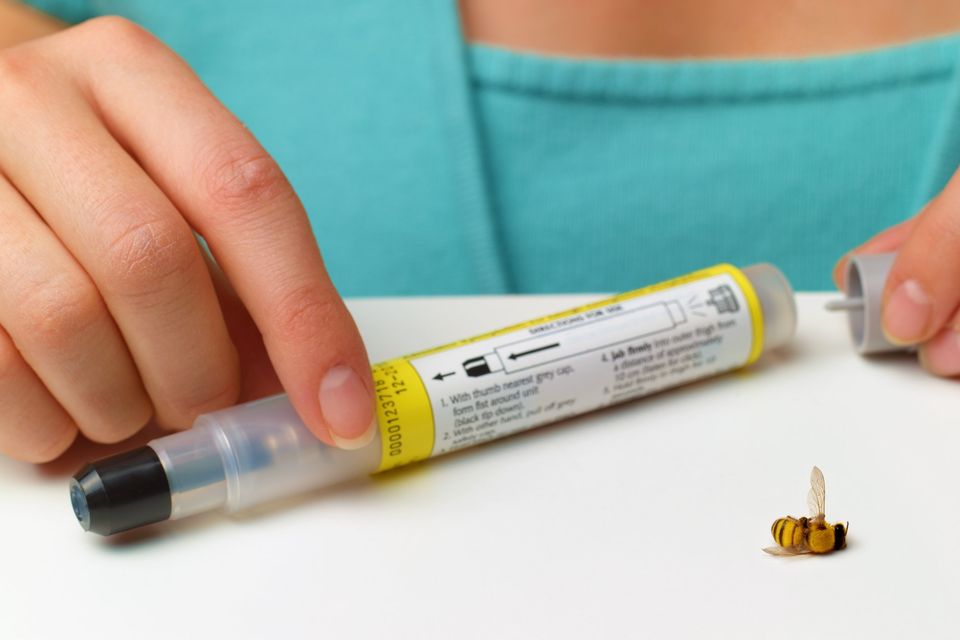Majority of teachers not trained to use life-saving EpiPens
Preparing an EpiPen for use. Photo: Getty
A new study found most Irish primary school staff have not been trained to operate life-saving adrenaline auto-injectors.
Adrenaline — available through auto-injectors such as EpiPen or Jext adrenaline pen — is the first-line medication for anaphylaxis, which is a sudden, severe and potentially life-threatening reaction.
The University of Galway’s research found 80pc of teachers and special needs assistants (SNAs) had not been trained to recognise the signs of a severe allergic reaction and 77pc were not trained to administer an adrenaline auto-injector (AAI).
With the prevalence of food allergies estimated at between 1.4pc and 3.8pc in schoolchildren, the researchers noted that international studies show anaphylaxis occurs in a school setting in 10pc to 16pc of cases.
Food items are the most common trigger, followed by insect stings, with nuts the most frequent cause of food allergies.
In the study, researchers from the University of Galway assessed the ability of 61 teachers and SNAs to deliver the shot correctly in a simulated test with a paediatric mannequin. Just six of the 61 teaching staff — 9.8pc — performed all four steps in administering an adrenaline auto-injector correctly.
“I think the study is important as due to the increasing prevalence of food allergies in children, teachers are more likely than ever to be faced with the challenge of managing a pupil with anaphylaxis,” said Professor Paul O’Connor.
“Though not a complex task, teachers largely lack the confidence and competence to use an auto-injector to deliver a dose of adrenaline to a pupil experiencing anaphylaxis.”
The study found the most frequent error among the teachers and SNAs was not holding the device in place for 10 seconds. Almost a third of participants held the device in place for less than three seconds.
The study found eight participants (13pc) incorrectly inverted the AAI and would have injected themselves, had a real AAI been used.
Another finding was that three participants delivered the AAI successfully by following the instructions on the device, despite receiving no previous training.
“At least in a simulated setting, there is utility in these instructions if they are noticed and used,” said the researchers.
The Irish researchers said it is important to address this hesitancy, as a delay in administration of adrenaline has been found to be associated with an increased risk of death.
“Teachers are often inadequately prepared to use an AAI, resulting in potentially dangerous treatment delays,” said the study.
The research, led by paediatrician Dr Paul Donovan, was carried out on staff from four primary schools in Cork. Most teaching staff reported little or no confidence in their ability to deliver an adrenaline shot.
“Our findings agree with other studies that have found that even with training, parents and caregivers have low levels of confidence and high levels of anxiety in correctly using an AAI. This lack of confidence may lead to AAI use hesitancy in which treatment is delayed because caregivers are afraid to use the device.”
The study, in the European Journal of Paediatrics, said poor ability in AAI use is seen across population groups including healthcare professionals, patients and carers.
The study concluded that schools and education authorities must recognise the increased likelihood of teachers encountering anaphylaxis — and must develop robust policies, and train teachers how to manage such situations.
Join the Irish Independent WhatsApp channel
Stay up to date with all the latest news















